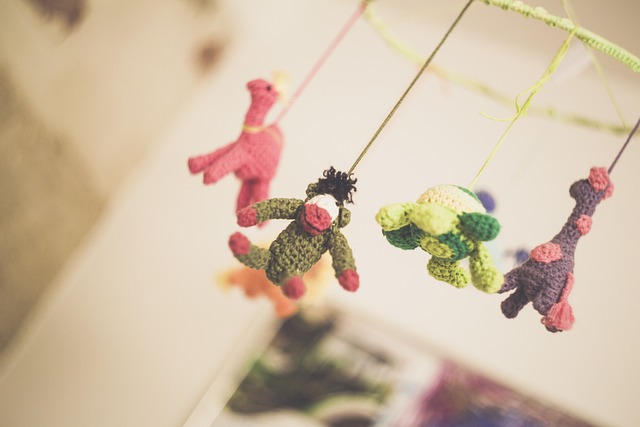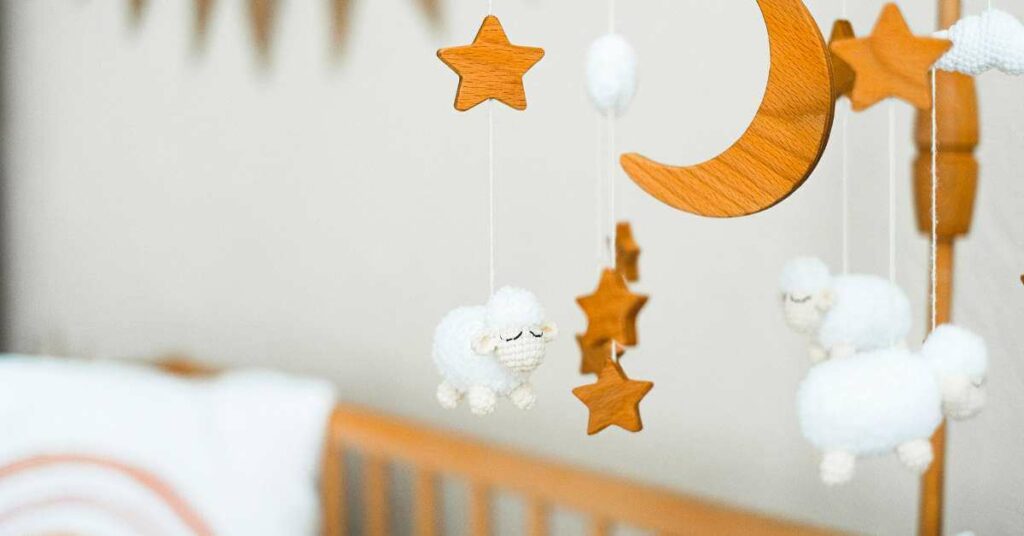Getting your baby to go to sleep can be one of the most challenging tasks for any parent. Establishing a bedtime routine is important in helping your little one settle down and get ready for sleep.
Having a regular nighttime ritual will not only help create consistency in your child’s day-to-day life, but it can also provide them with comfort and security as they drift off into dreamland. Here are some tips on setting up a bedtime routine that will benefit you and your baby.
The Importance of a Bedtime Routine
Creating a bedtime routine is essential to teaching your baby healthy sleeping habits. A nighttime ritual can help the body and mind prepare for sleep, instilling a sense of security and predictability as your child enters the world of dreams each night. The purpose of a bedtime routine is to create an environment conducive to winding down, setting the stage for a peaceful slumber.
The Benefits of Sleep for Baby’s Health and Development
1. Establishing a bedtime routine helps create consistency and security for your baby.
2. A nighttime ritual can help the body and mind prepare for sleep.
3. A bedtime routine sets the stage for a peaceful slumber each night.
4. Having a regular nighttime ritual is essential to teaching your baby good sleeping habits.
5. Sleep provides important health and development benefits for babies of all ages.
Understanding Baby’s Sleep Patterns
Newborn Sleep Patterns
Newborns typically sleep around 16 hours daily, but not always at night. Babies may not have a regular schedule during the first few weeks of life and can nap throughout the day or night. As your little one grows, they will establish their own natural circadian rhythms—the body’s internal clock—which will help them adjust to a more regular sleeping schedule.
Changes in Sleep Patterns as Baby Grows
As your baby gets older, their sleep patterns will change. During the first few months of life, most babies begin to sleep for longer stretches at night and take shorter naps during the day. As your child reaches six months old, they may start sleeping through the night without needing to be fed or changed. Additionally, you may begin to see changes in the nap schedule at this time, as well. By the time your baby is one year old, they should sleep for around 11 hours each night and take two or three naps throughout the day.
Common Misconceptions About Baby Sleep
1. Newborns will sleep through the night – This is a common misconception but not true for most babies. It usually takes several months before they can sleep for longer stretches at night without needing to be fed or changed.
2. Babies should self-soothe – While some babies may learn to self-soothe on their own, it’s not typically expected of them at a young age. It’s essential to provide comfort and reassurance to your baby when needed, especially if they are having trouble falling asleep.
3. There’s one ‘right’ way – Every baby is different, and each family should find the best sleep routine for them. There is no ‘right’ way to do it, so don’t be afraid to experiment and find what works for you!
Getting Started: Establishing the Bedtime Routine
Choosing the Right Bedtime
It’s essential to pick a specific bedtime for your baby that is appropriate for their age. While babies up to 6 months sleep around 16 hours each day, those 7-12 months should sleep around 11 hours. That means if you’re aiming for an 8:00 p.m. bedtime, this could mean your baby needs to wake up by 7:00 a.m.
Creating the Right Environment
When setting up your baby’s bedroom, be sure to create an environment conducive to sleep. Ensure the room is dark and cool enough for comfort, with no bright lights or noise. In addition to these, incorporating the following elements can further enhance the sleep environment and provide a soothing ambiance:
- Musical Mobiles: A mobile with gentle music can soothe your baby and act as a signal that it’s time to sleep.
- Mobiles with Lights: A mobile with soft, diffused lights can provide just enough glow to make your baby feel secure without disturbing their sleep.
- Night Light: A low-wattage night light can help create a calming atmosphere and make nighttime feedings or diaper changes easier without fully waking the baby.
- Sound Machine: A sound machine that emits white noise or soft, calming sounds can help mask household noise and provide a consistent audio environment that signals sleep time.
- Soft, Comfortable Bedding: Use soft sheets and blankets that are appropriate for the current temperature.
- Pacifiers: If your baby likes them, having a pacifier at hand can help soothe them to sleep.
- Room Thermometer: To ensure the room stays at a comfortable temperature throughout the night.
- Blackout Curtains: These can help keep the room dark even during daylight hours, which can be particularly useful for naps.
Remember, the goal is to make the room a serene and comfortable space that supports your baby’s sleep.
Adapting the Routine to Baby’s Age
As your baby grows, adjusting the bedtime routine is essential. For example, if your baby is over six months old, it may be able to stay awake for extended periods before bedtime. This could mean having a few extra activities like reading or singing songs before they go to sleep. Additionally, you may have to adjust the routine as their nap schedule changes.
Final Words
Creating a bedtime routine is one of the best ways to ensure your baby gets the quality sleep they need for healthy development. A regular nighttime ritual can help the body and mind prepare for a peaceful slumber while giving your baby a sense of security and predictability. However, understanding your baby’s sleep patterns and the components of a successful bedtime routine can be tricky.
FAQs
At What Age Can I Start a Bedtime Routine?
You can establish a simple bedtime routine when your baby is around 6-8 weeks old. Initially, the routine can consist of basic elements like a bath, changing into sleepwear, and feeding. As your baby grows, you can incorporate more components, such as story time or lullabies, into the routine.
What If My Baby Refuses to Sleep?
It’s natural for babies to resist sleep sometimes. This could be due to overstimulation, overtiredness, hunger, or discomfort, among other reasons. Try to identify any potential issues, adjust the routine if needed, and maintain consistency. If your baby consistently struggles with sleep, consulting a healthcare professional might be a good idea.
How Can I Adjust the Bedtime Routine as My Baby Grows?
As your baby grows, their sleep needs change, and so will the bedtime routine. For example, newborns sleep a lot and at irregular intervals, while older babies have more predictable sleep patterns. Therefore, your bedtime routine will need to adjust to these changes. Older babies may benefit from a story or a lullaby, while a simple feed might suffice for a newborn. Listen to your baby’s cues and adjust the routine as needed.
What to Do When Traveling or During Daylight Savings Time Changes?
Traveling or changes in daylight savings time can disrupt your baby’s sleep routine. When traveling, try to maintain the same routine as much as possible. Adjust the bedtime gradually to the new time zone by shifting it to 15 minutes earlier or later every day. During daylight savings time changes, do the same – adjust the bedtime gradually in 15-minute increments to make the transition smoother.
How Long Should a Bedtime Routine Be?
A bedtime routine for a baby should ideally be between 20-30 minutes long. This provides enough time to include all essential components, such as a bath, feeding, and a story or lullaby, but it is not so long that the baby becomes overstimulated or overtired. Remember that the routine aims to signal your baby that it’s time for sleep, so it should be calming and consistent.








